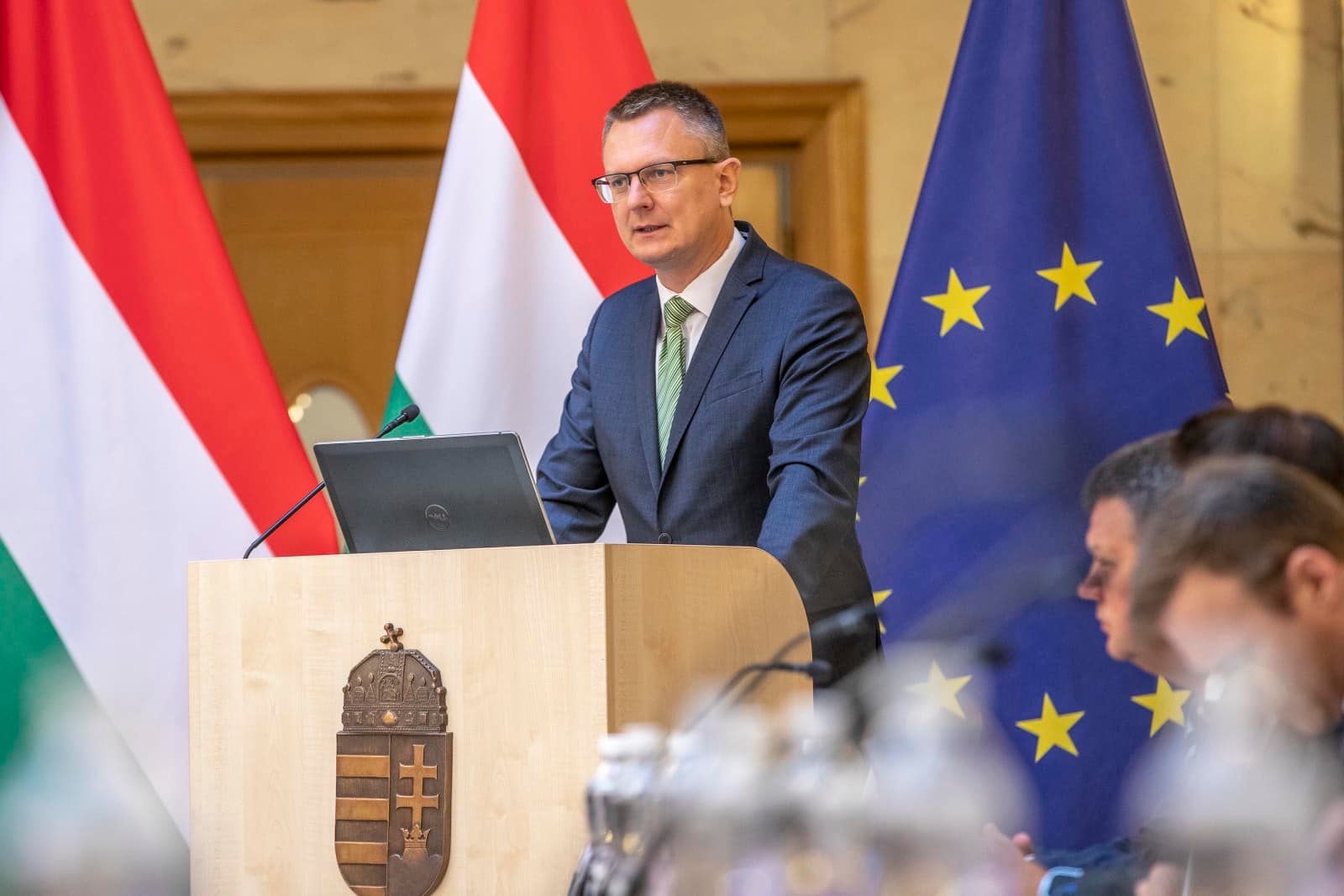State Secretary Zoltán Kovács emphasized that the creation of migrant ghettos contradicts the will of the Hungarian people and the constitution.Continue reading
Brussels’ proposal on mandatory resettlement quotas includes the idea of setting up the EU’s largest migrant settlement in Hungary, Bence Rétvári, Secretary of State at the Ministry of Interior said on Saturday.

Bence Rétvári, Secretary of State of the Interior Ministry. Photo: Facebook/Rétvári Bence
The Secretary of State said that Brussels’ plans would require the continuing maintenance of the machinery for the simultaneous processing of 11,320 immigration applications. In total, this would mean a permanent presence of tens of thousands of illegal immigrants in the country.
The politician reasoned that the exceptionally high Hungarian rate was likely due to Hungary’s compliance with EU rules, the protection of its borders, and the regular recording of all illegal border crossings.
Bence Rétvári argued that in other countries, border control is less disciplined, and their data reaches EU systems only in fragments. Hence, they would put a disproportionate burden on Hungary because it has acted according the rules by protecting the borders.
Regardless of the EU’s plans, the Secretary of State underlined that
we cannot accept mandatory quotas, threatening penalties, or the creation of migrant camps.”
In the 2016 referendum, 98 percent of the participants (3.3 million people), said ‘no’ to mandatory quotas, he noted.
He pointed out that Hungary and Poland voted ‘no’, while several countries abstained in the Justice and Home Affairs Council on the vote on mandatory quotas. Although it had been decided earlier that only a consensus could be reached on migration, Brussels pushed through the proposal by a qualified majority. In doing so, it went against its own previous rules.
Rétvári explained that the Hungarian rules are clear: if someone wants to come to Hungary, he or she has to submit an application at the embassy, and if the application is approved, he or she can enter the country. “Our aim is to keep illegal migrants out of Europe, and their applications are assessed before they enter the EU. Once inside the EU, it is almost impossible to deport them,” he added.
He concluded by saying
We do not want to organize illegal migration, we want to stop it. The EU must not forcefully order Member States to do things, but respect their decisions.”
Featured image: Facebook/SOS MEDITERRANEE France